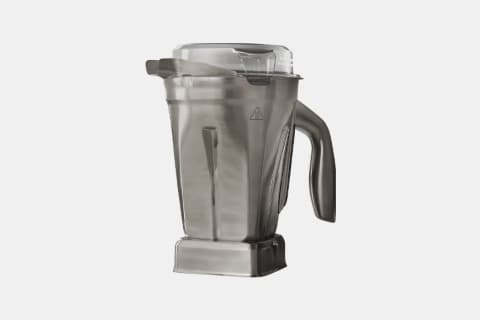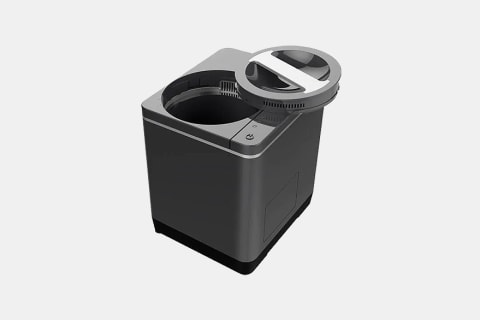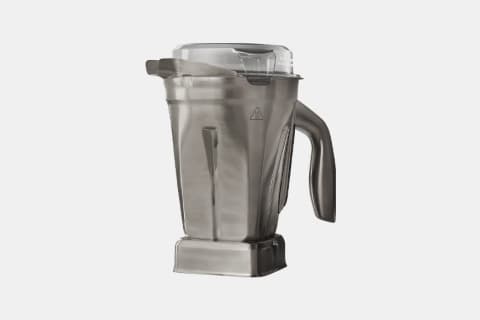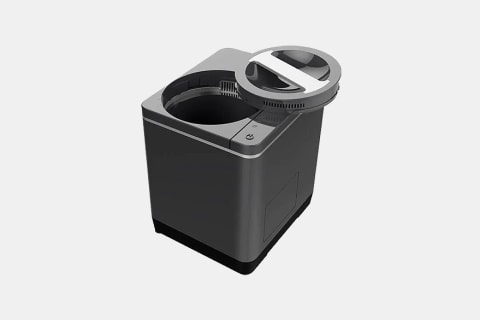Advertisement
How To Shop For Appliances That Are Better For You & The Planet
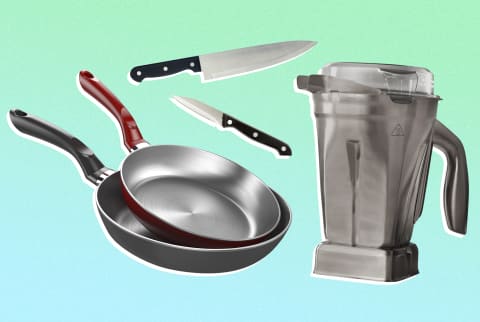
Making a commitment to reducing your waste doesn't mean a total upheaval of your daily life. Whether it's turning the lights out when you leave the room, spending less time in the shower, or *actually* remembering to bring that reusable tote, the most effective way to form happy-planet habits is to start small. And we think the kitchen—a small space with major impact—is the best place to start.
Shop this story:
You don't need a transformation to be more eco-conscious.
Major disruptions to your lifestyle can be overwhelming—especially right now—and we're not always so good at sticking to our plans. So before you think that making your kitchen more sustainable means getting rid of everything that requires an electric current, think again. In fact, it may require upgrades to what you already have.
One simple way to do this is to make sure your appliances are built to last. Sure, bargain deals have their place (see: that thrift shop T-shirt you've had since high school), but the kitchen is one place where making an investment is worth it. One brand that continues to exemplify this "dependable over disposable" mindset is Vitamix. More recently, they launched a stainless steel alternative to their classic BPA-free containers. We got our hands on one, and we have to say, this thing is essentially an odor-resistant space shuttle that also makes killer gazpacho. For all the kitchen gadgets you have to replace after a few months (whether due to wear and tear or a smell that won't go away), this easy-to-clean countertop essential will last you longer than that cast-iron skillet you inherited from your grandma.
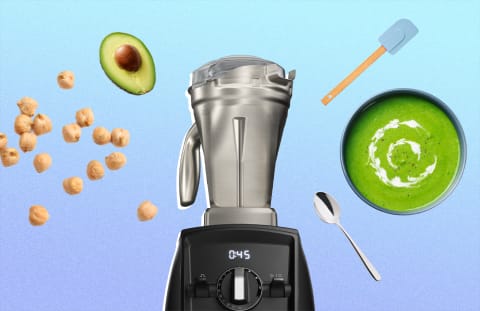
Adopt a "less is more" mentality.
Perhaps the most important factor in manifesting the eco-friendly kitchen of your dreams is to optimize every inch of it for efficiency (just ask anyone who's ever lived in a cramped city apartment). Take the omelet maker, for example: Does it do the job? Yes. But so does a regular old frying pan, which serves many other purposes while taking up the same amount of room on your counter.
This logic can be easily applied to, well, just about every other tool, gizmo, and gadget in your kitchen. Single-use items—be it a waffle maker, pizza scissors, or an (ugh) "avocado slicer"—do little beyond taking up space (physically and mentally). Beyond the real estate they occupy on the counter, they could also be using up unnecessary energy (here's how to combat that throughout the home).
Our advice? Stick to the basics (plot twist: Your grandma's legendary lasagna recipe was made using nothing but a chef's knife and an oven). So, much in the way you wouldn't eat any ingredients your grandma couldn't pronounce, maybe it's time to ditch any appliances she wouldn't know how to use.
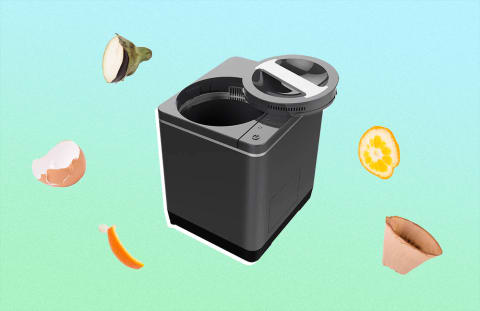
Make the most of your waste.
We waste a lot of the food we buy—nearly one-third of it, according to one study. But before you get discouraged, know that there are plenty of small steps you can take to drastically reduce your own waste (and up your kitchen's sustainability factor in the process).
Planning your grocery trips and getting creative with excess ingredients are both places to start, but we at mbg have long been huge advocates for the power of composting. While traditional composting has always been a tried-and-true method, modern appliances like the Vitamix FoodCycler™ FC-50 are making it easier than ever to reduce food waste. Gone are the days when composting made your kitchen smell like soggy banana peels, because this countertop recycler is completely odorless (not to mention silent). And with its compact size—it fits almost anywhere in your home that's near a power outlet—and speed, transforming your food scraps in nutrient-rich fertilizer has never been more accessible.
Shop this story:

Why Nutrition Is Key To Changing Your Relationship With Alcohol
Brooke Scheller, DCN, CNS

Why Alcohol Sabotages Your Gut Health & How To Get Back On Track
Brooke Scheller, DCN, CNS

Why Nutrition Is Key To Changing Your Relationship With Alcohol
Brooke Scheller, DCN, CNS

Why Alcohol Sabotages Your Gut Health & How To Get Back On Track
Brooke Scheller, DCN, CNS

Why Nutrition Is Key To Changing Your Relationship With Alcohol
Brooke Scheller, DCN, CNS

Why Alcohol Sabotages Your Gut Health & How To Get Back On Track
Brooke Scheller, DCN, CNS

Why Nutrition Is Key To Changing Your Relationship With Alcohol
Brooke Scheller, DCN, CNS

Why Alcohol Sabotages Your Gut Health & How To Get Back On Track
Brooke Scheller, DCN, CNS

